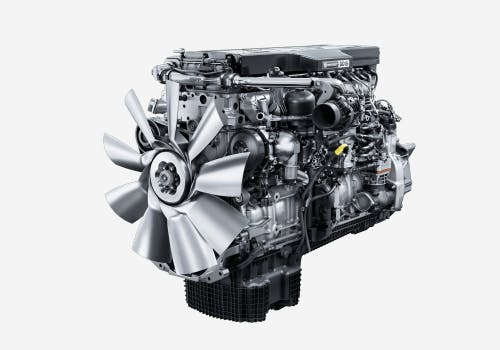Boost Your Fleet with Engines For Africa's Option
Boost Your Fleet with Engines For Africa's Option
Blog Article
Discover a Large Range of Engines for each Vehicle and Function
The auto landscape is progressively complex, with a varied array of engine kinds developed to satisfy particular efficiency and efficiency demands throughout various lorry classifications. Additionally, sturdy engines serve the demands of job vehicles, while green options are obtaining traction in the search of sustainable transportation.
Kinds Of Automotive Engines
Automotive engines can be categorized right into several unique kinds, each designed to satisfy details performance and effectiveness requirements. The most common groups include interior burning engines, electrical engines, and hybrid systems.

Electric engines, on the other hand, run on electric power kept in batteries, providing immediate torque and absolutely no emissions. These engines are coming to be increasingly prominent as a result of developments in battery modern technology and the growing emphasis on sustainability.
Hybrid systems incorporate both internal combustion and electrical engines, making it possible for vehicles to enhance gas performance and reduce emissions by flawlessly changing between source of power. Each engine kind provides its negative aspects and advantages, affecting variables such as vehicle style, meant usage, and market need. Comprehending these differences is important for customers and manufacturers alike when choosing the ideal engine for their specific requirements.
Performance Engines for Sports Cars
Efficiency engines for sports cars are specifically crafted to provide boosted dexterity, power, and rate, setting them aside from common automotive engines. These engines frequently make use of advanced innovations such as turbocharging, supercharging, and variable valve timing to make the most of performance and responsiveness.
Commonly, efficiency engines are developed with greater compression ratios, which enable for better energy extraction from gas. This results in excellent horse power and torque numbers, enabling quick acceleration and greater top speeds. The light-weight materials used in these engines, such as aluminum and carbon fiber, add to lowered general vehicle weight, boosting handling and maneuverability.
Engine setups like V6, V8, and also hybrid systems are usual in performance sporting activities vehicles, each offering one-of-a-kind advantages in terms of power distribution and driving dynamics. The tuning of these engines is also vital; lots of producers maximize the engine management systems to offer an exhilarating driving experience, usually consisting of sporting activity settings that adjust throttle feedback and equipment shifts.
Reliable Engines for Daily Commuters
In the realm of day-to-day travelling, effective engines play a crucial duty in enhancing fuel economic situation and lessening emissions while supplying reputable efficiency. As metropolitan populations expand and environmental concerns increase, the demand for lorries geared up with reliable powertrains has risen.
Modern engines made for day-to-day travelers commonly integrate innovations such as turbocharging, straight fuel shot, and hybrid systems. Turbocharging enhances engine performance by forcing even more air right into the burning chamber, allowing for smaller sized, lighter engines that do not jeopardize power output. Straight gas injection improves gas atomization, leading to much better combustion and raised efficiency.
Hybrid engines, combining internal combustion with electric power, further boost fuel economy, especially in stop-and-go website traffic, where conventional engines can suffer from inefficiencies. Electric electric motors aid throughout acceleration and can operate individually at low rates, minimizing general fuel usage.
Moreover, innovations in engine monitoring systems and lightweight materials add considerably to effective engine style. By concentrating on efficiency, longevity, and environmental sustainability, important site producers continue to provide engines that not just meet the needs of day-to-day commuting however likewise line up with worldwide initiatives to decrease carbon footprints.
Heavy-Duty Engines for Work Vehicles
Sturdy engines for job vehicles are consistently crafted to deliver exceptional torque and reliability under demanding conditions. These engines are made to do in settings where conventional engines may fail, such as building sites, logging operations, and farming settings. The primary emphasis of durable engines is their capacity to produce high degrees of power while maintaining toughness over prolonged durations of operation.
Commonly, heavy-duty engines use innovative products and durable building and construction methods to endure the roughness of heavy work. Functions such as reinforced cyndrical tube blocks, boosted cooling systems, and progressed gas shot technologies add to their performance. These engines typically operate website here at reduced RPMs, which helps to maximize fuel effectiveness while supplying the needed power for lugging and carrying.
In addition to mechanical effectiveness, heavy-duty engines are often furnished with innovative digital control units (ECUs) that manage efficiency, exhausts, and diagnostics. This combination allows for better monitoring and maintenance, ensuring that job cars stay functional and effective.
Ultimately, sturdy engines are a vital component in the productivity of numerous sectors, offering the necessary power and integrity to deal with the hardest of jobs.
Eco-Friendly Engine Options
The growing focus on sustainability has resulted in the development of green engine choices that focus on reduced discharges and enhanced gas effectiveness. These engines are developed to reduce the environmental impact of lorries while still supplying the efficiency and integrity anticipated by customers.
Among the most noteworthy eco-friendly options are hybrid and electric engines. Crossbreed engines combine traditional inner burning engines with electric propulsion, allowing for helpful hints decreased fuel intake and reduced greenhouse gas emissions. Electric engines, on the other hand, operate entirely on battery power, generating absolutely no tailpipe discharges and adding to cleaner air high quality.
An additional appealing growth is the development of biofuel engines, which utilize renewable energies, such as plant products, to power cars (Engines For Africa). By utilizing biofuels, these engines can lower reliance on fossil gas and lower total carbon footprints

As the automotive industry progresses, eco-friendly engine choices will certainly play a crucial role in driving the shift towards more sustainable transportation options.
Conclusion
From high-performance engines that enhance sporting activities vehicle capabilities to effective designs prioritizing gas economic climate for day-to-day commuters, each kind offers a certain function. Sturdy engines cater to durable job vehicles, while green options, such as electric and biofuel engines, advertise lasting transport.

Report this page